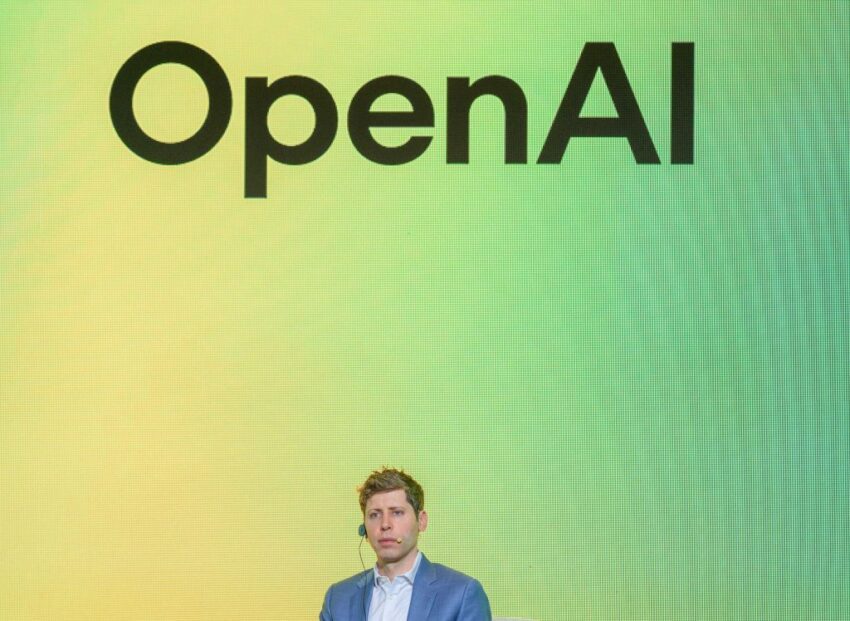
the circular money problem at the heart SoftBank and OpenAI have recently announced a new 50-50 joint venture to sell enterprise AI tools in Japan, branded as “Crystal Intelligence.”
the circular money problem at the heart
Overview of the Joint Venture
The collaboration between SoftBank and OpenAI marks a significant step in the global expansion of AI technologies. This joint venture aims to leverage OpenAI’s advanced artificial intelligence capabilities while utilizing SoftBank’s extensive network and market knowledge in Japan. The partnership is expected to facilitate the introduction of AI-driven solutions tailored for various industries, including finance, healthcare, and retail.
Strategic Goals
The primary objective of Crystal Intelligence is to provide businesses in Japan with cutting-edge AI tools that can enhance operational efficiency and drive innovation. By combining SoftBank’s local expertise with OpenAI’s technological prowess, the venture seeks to address specific market needs and challenges faced by Japanese enterprises.
Market Context
Japan has been increasingly investing in AI technologies, recognizing their potential to transform industries and improve productivity. The Japanese government has set ambitious goals for AI adoption, aiming to position the country as a leader in this rapidly evolving field. This joint venture aligns with national priorities and reflects a growing trend of international partnerships in the AI sector.
The Circular Money Problem
While the establishment of Crystal Intelligence appears beneficial on the surface, it raises critical questions about the underlying economic dynamics of such partnerships. Specifically, the relationship between SoftBank and OpenAI highlights a phenomenon often referred to as the “circular money problem.” This term describes a situation where significant investments in AI do not necessarily translate into tangible economic value but instead circulate within a closed ecosystem.
Understanding the Circular Money Problem
The circular money problem arises when investments in AI companies are primarily funded by other AI companies or their investors, creating a feedback loop that does not contribute to broader economic growth. In this case, SoftBank, a major investor in OpenAI, is now collaborating with the same company to sell AI tools. This raises concerns about whether the financial flows are genuinely fostering innovation or merely redistributing existing capital.
Implications for the AI Industry
The implications of this circular money problem are significant for the AI industry as a whole. If investments are primarily recycled within a small group of companies, it could lead to a lack of genuine innovation and economic development. Stakeholders may become increasingly skeptical about the long-term viability of such ventures, questioning whether they are creating real value or merely inflating valuations.
Stakeholder Reactions
Reactions from stakeholders within the tech industry and beyond have been mixed. Some experts view the SoftBank-OpenAI partnership as a positive development, arguing that it could accelerate the adoption of AI technologies in Japan and stimulate economic growth. They contend that the collaboration could lead to the development of new products and services that benefit a wide range of industries.
Concerns from Economists
Conversely, economists and industry analysts have expressed concerns about the sustainability of such business models. They argue that if the circular money problem persists, it could hinder the overall growth of the AI sector. The reliance on a limited number of investors may stifle competition and innovation, ultimately leading to a stagnation of advancements in AI technologies.
Potential Solutions
To address the circular money problem, experts suggest several potential solutions:
- Diversification of Investments: Encouraging a broader range of investors to participate in AI funding could help distribute capital more evenly across the industry.
- Focus on Real-World Applications: Companies should prioritize developing AI solutions that address pressing societal challenges, ensuring that investments lead to meaningful outcomes.
- Regulatory Oversight: Implementing regulatory frameworks that promote transparency and accountability in AI investments could help mitigate the risks associated with circular money flows.
The Future of AI Partnerships
The SoftBank-OpenAI joint venture is just one of many collaborations emerging in the AI landscape. As companies continue to seek partnerships to enhance their capabilities, the industry must grapple with the implications of these relationships. The circular money problem serves as a reminder of the need for vigilance in ensuring that investments in AI lead to genuine economic value.
Global Trends in AI Collaborations
Globally, there has been a surge in partnerships between tech companies, research institutions, and governments aimed at advancing AI technologies. These collaborations often focus on shared goals, such as improving healthcare outcomes, enhancing cybersecurity, and addressing climate change. However, as the SoftBank-OpenAI case illustrates, it is crucial to evaluate the economic impact of these partnerships critically.
Long-Term Outlook
Looking ahead, the success of the Crystal Intelligence venture will depend on its ability to generate real value for businesses in Japan. If the partnership can deliver innovative solutions that improve efficiency and drive growth, it may serve as a model for future collaborations in the AI sector. Conversely, if the venture becomes mired in the circular money problem, it could raise questions about the sustainability of similar initiatives.
Conclusion
The announcement of the SoftBank-OpenAI joint venture represents a significant development in the AI landscape, particularly in Japan. While the collaboration has the potential to drive innovation and economic growth, it also highlights the challenges posed by the circular money problem. As the industry continues to evolve, stakeholders must remain vigilant in assessing the true value generated by such partnerships. By addressing the underlying economic dynamics, the AI sector can work towards a more sustainable and impactful future.
Source: Original report
Was this helpful?
Last Modified: November 11, 2025 at 4:38 am
3 views















